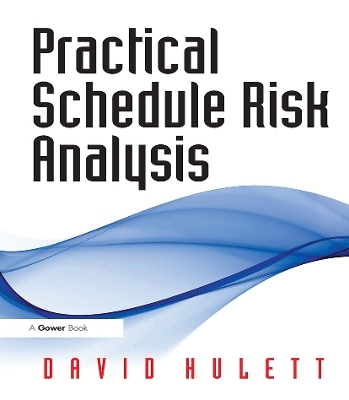
Practical Schedule Risk Analysis
Routledge (Verlag)
978-1-032-83796-3 (ISBN)
Project scheduling is required for good project management, and the schedule represents the project plan under a specific set of assumptions, often that it will avoid new risks or even those that have occurred on previous occasions. The typical Critical Path Method (CPM) schedule assumes that the project team knows how long the scheduled activities will take. Yet, the experienced project manager knows that duration values so precisely stated are actually only estimates based on assumptions that could be wrong. A schedule risk analysis explores the implications for the project's schedule of risk to the activity durations and also identifies the most important schedule risks. This analysis, building on and extending CPM scheduling, will result in a more accurate estimate of completion and provide an early opportunity for planning effective risk mitigation actions. Practical Schedule Risk Analysis contains a complete treatment of schedule risk analysis from basic to advanced concepts. The methods are introduced at the simplest level: * Why is the duration uncertain? * And how do we represent this uncertainty with a probability distribution? These are then progressively elaborated: * How does uncertainty of activities along a path lead to more uncertainty of the path's completion date? * How can a schedule with parallel paths be riskier than each of the paths individually? * How can we represent risks about activities that are not in the schedule at all? Culminating in a discussion of the most powerful and advanced capabilities available in current commercial software. Schedule risk analysis is a process that is industry-independent, and the methods explained in this volume have been used by the author with positive effect in such industries as construction, oil and gas, information systems, environmental restoration and aerospace/defense. The result is a book that is not only highly practical; something that people within all types of projects and in all industries can apply themselves; but that is an extraordinarily complete guide to creating and managing a rigorous project schedule.
David T. Hulett is internationally recognised as a leading expert in risk management, leader in risk management activities of the Project Management Institute (project manager of the Risk Management chapter of the PMBOK�‚® Guide, 2000 and 3rd editions), deputy PM of the Practice Standard for Project Risk Management (ongoing) and frequent conference speaker. He has a consulting and training practice with clients in many industries around the world.
Chapter 1 Why Schedule Risk Analysis? Looking Beyond the Critical Path Method; Chapter 2 Uncertainty in Activity Durations: Using Probability Distributions; Chapter 3 Uncertainty Along a Schedule Path: Using Monte Carlo Simulation; Chapter 4 A Good Project Schedule is Needed: Critical Path Method Scheduling 101; Chapter 5 Collecting Risk Data: Exploring Methods and Problems; Chapter 6 Where Parallel Paths Merge: Introductionducing the 'Merge Bias' and Risk Criticality; Chapter 7 Probabilistic Branching: Analyzing Discrete Risk Events; Chapter 8 Using Risks to Drive the Analysis and Prioritize Risks: Introductionducing the 'Risk Driver' Method; Chapter 9 Schedule Contingency Plans: Using Conditional Branching; Chapter 10 When Activity Durations Move Together: Incorporating Correlation; Chapter 11 Risk Management in the Organization: Identifying the Mature Risk Management Culture;
| Erscheinungsdatum | 22.08.2024 |
|---|---|
| Verlagsort | London |
| Sprache | englisch |
| Maße | 174 x 246 mm |
| Gewicht | 440 g |
| Themenwelt | Technik ► Umwelttechnik / Biotechnologie |
| Wirtschaft ► Betriebswirtschaft / Management ► Logistik / Produktion | |
| Wirtschaft ► Betriebswirtschaft / Management ► Projektmanagement | |
| Wirtschaft ► Betriebswirtschaft / Management ► Unternehmensführung / Management | |
| Wirtschaft ► Volkswirtschaftslehre | |
| ISBN-10 | 1-032-83796-9 / 1032837969 |
| ISBN-13 | 978-1-032-83796-3 / 9781032837963 |
| Zustand | Neuware |
| Informationen gemäß Produktsicherheitsverordnung (GPSR) | |
| Haben Sie eine Frage zum Produkt? |
aus dem Bereich


